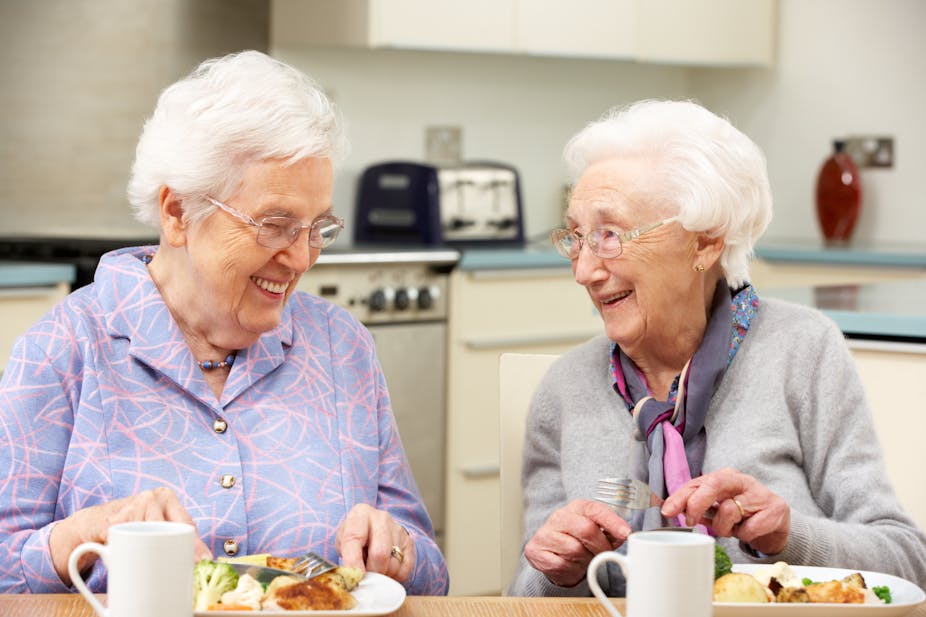
Protein is an essential part of a healthy diet. It helps us build and maintain strong muscles and bones, helps us better recover from illness and injury, and reduces likelihood of falls and fractures. But, as we age, many of us don’t get enough protein in our diet. This is partly because our appetites diminish naturally as we get older. Convenience, effort, and value for money, are also reasons that older adults may not get enough protein.
However, protein is extremely important as we age. This is because our bodies become less able to convert the protein we eat into muscle and other important biological factors that help us better recover from illness and injury – so we actually need to eat more protein as we get older.
Here are five tips to help you get enough protein in your diet as you age.
1. Add sauces and seasonings
Research shows that the taste and flavour of high-protein foods can encourage older adults to consume more of them. And taste and flavour are easily added with sauces and seasoning.
In studies where we have offered older adults a hot chicken meal either with or without sauce or seasoning, we find more chicken was eaten from the meals with sauce or seasoning compared to plain meals. Meals with sauces and seasonings were also rated as more pleasant and tastier than the plain meals.
Adding sauces and seasonings to meals can increase the consumption of high-protein foods. Participants also subsequently ate equal amounts of protein at the next meal following flavoured meals and plain meals, meaning that their protein intake was increased overall.
2. Add cheese, nuts or seeds
Some foods that add flavours are naturally high in protein themselves. Good examples are strong cheeses – like blue cheese – as well as nuts and seeds.
As well as protein, cheese is full of calcium and other micronutrients, including Vitamins A, D and B12, which also help maintain strong bones. Cheese can be easily added to soups, salads, pasta or mashed potatoes.
Nuts and seeds can be added to breakfast cereals, salads and desserts such as yoghurts, and can provide an interesting texture as well as added flavour. Nuts and seeds are good sources of plant-based protein, and are also high in healthy fats, fibre, and many vitamins and minerals, and can reduce risk of many chronic conditions, such as cardiovascular disease and type 2 diabetes. However, nuts and seeds may not be suitable for everyone (as they can be difficult to chew), but cheese is soft and full of flavour.
3. Eat eggs for breakfast
Breakfast meals tend to be low in protein – so eating eggs for breakfast is one way to boost protein intake.
Our recent study found egg intake could be increased by providing people with recipes and herb or spice seasoning packets that increased the taste and flavour of eggs. We gave participants recipes that used both familiar and exotic ingredients, from a variety of countries, for dishes that required a range of preparation methods. Egg intakes increased after 12 weeks by 20%, and were sustained for a further 12 weeks in those who had received the recipes.

Eggs are a nutritious source of protein, and are typically easy to prepare and chew, good value for money and have a long shelf life. Egg dishes can also add taste and flavour to the diet. However, eggs may not be suitable for everyone (including those with certain diagnosed conditions), but for most people egg consumption is considered safe.
4. Make it easy
Try to make cooking as quick and easy as possible. Many types of fish are available that can be eaten directly from the pack, or simply need heating – such as smoked mackerel or tinned sardines. Fish is also full of many vitamins and minerals, as well as omega-3 fatty acids (which are present in oily fish like salmon) which is good for heart health. To allow easier and quicker cooking, purchase meat that is pre-cut, pre-prepared or pre-marinated, or fish that has been deboned and otherwise prepared, and then make use of your microwave. Fish can be very easily and quickly cooked in the microwave.
Beans, pulses and legumes are also easily bought in cans and ready-to-eat, and are all rich sources of protein for those who wish to consume a more plant-based diet. They also contain fibre and many vitamins and minerals, and can protect against many chronic conditions including cardiovascular disease, diabetes and some cancers.
5. Eat high-protein snacks
Many people reach for biscuits or a slice of cake at snack time, but try eating a high-protein snack instead next time. Many high-protein foods are already prepared and easy to consume. Some examples include yoghurts or dairy-based desserts – such as crème caramel or panna cotta. Yoghurts and other dairy-based desserts can offer many health benefits, including improved bone mineral density, as necessary for strong bones. Nuts, crackers with cheese, peanut butter, or hummus are also great choices.
Inadequate protein intake can result in poor health outcomes, including low muscle mass and function and decreased bone density and mass, leading to increased risk of falls, frailty, and loss of mobility. To avoid these harms, researchers currently recommend consuming 1.0-1.2g protein per kilogram of bodyweight for older adults compared to 0.8g of protein per kilogram of bodyweight for all adults.
Professor of Psychology, Bournemouth University
Lecturer of Psychology, Bournemouth University
This article is republished from The Conversation under a Creative Commons license. Read the original article.



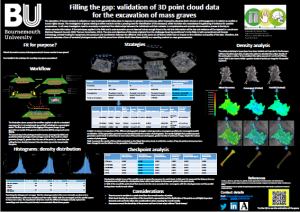
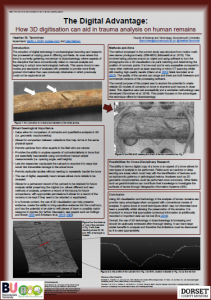


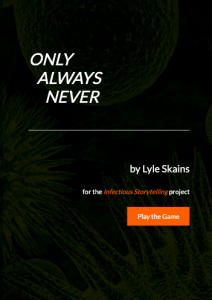
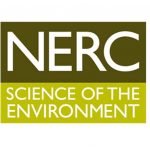 The South West Partnership for Environmental and Economic Prosperity (
The South West Partnership for Environmental and Economic Prosperity (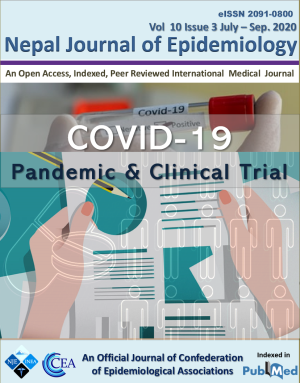
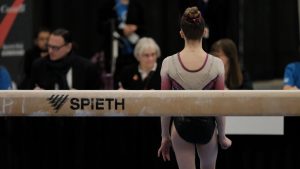

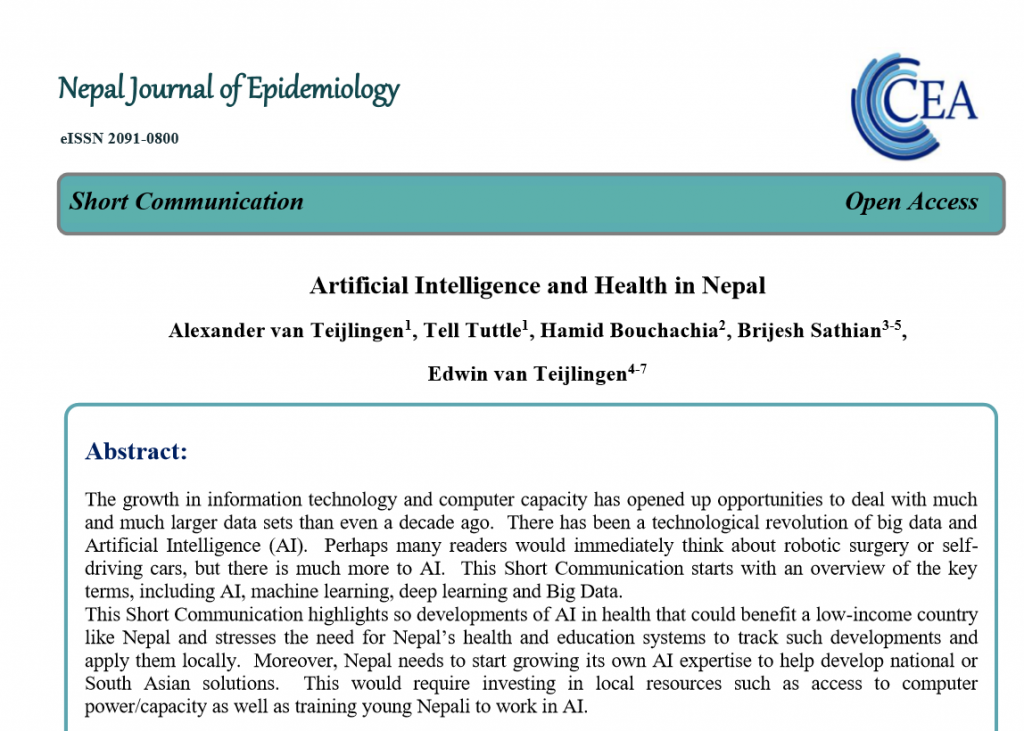
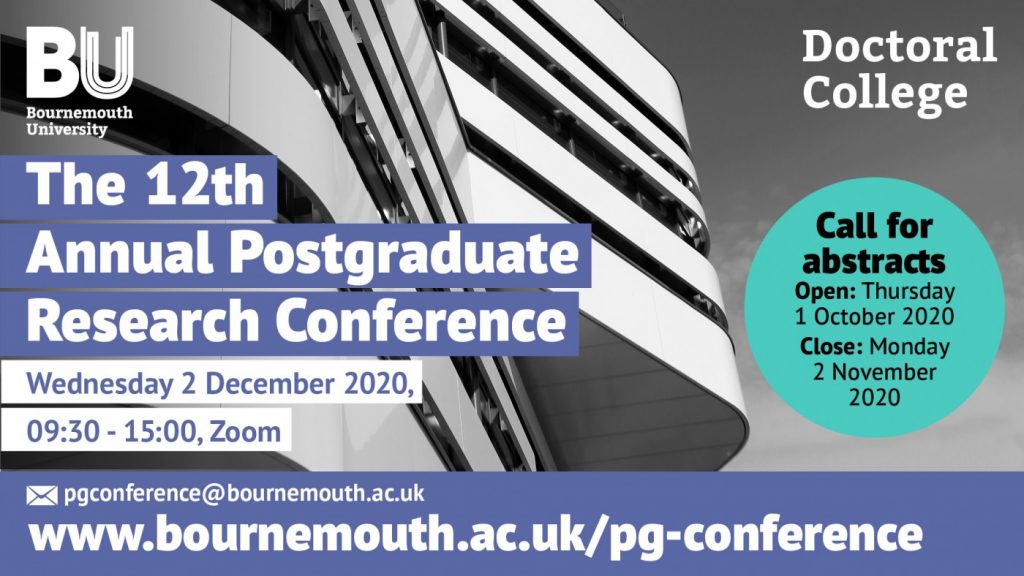
 Every BU academic has a
Every BU academic has a  By clicking on this box, on the left of the Research Blog home page just under the text ‘Funding Opportunities‘, you access a
By clicking on this box, on the left of the Research Blog home page just under the text ‘Funding Opportunities‘, you access a  As part of the Academic Targeted Research Scheme, I started my new role as Senior Lecturer in Sustainability, Impact and Consumption on the 1st of July this year.
As part of the Academic Targeted Research Scheme, I started my new role as Senior Lecturer in Sustainability, Impact and Consumption on the 1st of July this year.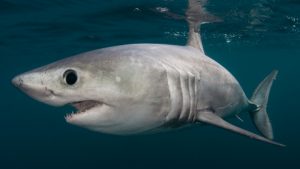 My research will focus on predator ecology and conservation and the project funded by the scheme is specifically centred on the porbeagle shark (Lamna nasus). The UK has several species of shark that call our waters home for at least part of the year and many are in dire need of conservation management. Highly mobile, migratory top predators like the porbeagle are important to understand and manage as they play vital roles in nutrient cycling, ecosystem linkage and maintaining food web stability as well as just being incredible species in their own right. Such species are also pretty difficult to study, especially in the marine environment!
My research will focus on predator ecology and conservation and the project funded by the scheme is specifically centred on the porbeagle shark (Lamna nasus). The UK has several species of shark that call our waters home for at least part of the year and many are in dire need of conservation management. Highly mobile, migratory top predators like the porbeagle are important to understand and manage as they play vital roles in nutrient cycling, ecosystem linkage and maintaining food web stability as well as just being incredible species in their own right. Such species are also pretty difficult to study, especially in the marine environment!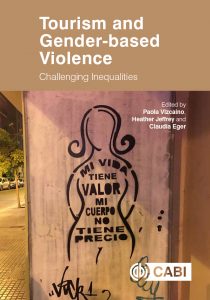











 New Bournemouth University public health paper
New Bournemouth University public health paper New ACORN-funded paper published. When time is short but passion for food is strong, food day-tripping may be the answer!
New ACORN-funded paper published. When time is short but passion for food is strong, food day-tripping may be the answer! Third INRC Symposium: Interdisciplinary Computational and Clinical Approaches at the Edge of Brain Research
Third INRC Symposium: Interdisciplinary Computational and Clinical Approaches at the Edge of Brain Research Royal Society of Chemistry Outreach Fund: Open for Applications
Royal Society of Chemistry Outreach Fund: Open for Applications Last reminder – MSCA Postdoctoral Fellowships 2024 internal deadline next week
Last reminder – MSCA Postdoctoral Fellowships 2024 internal deadline next week Horizon Europe – EuroHPC and MSCA PF webinars
Horizon Europe – EuroHPC and MSCA PF webinars